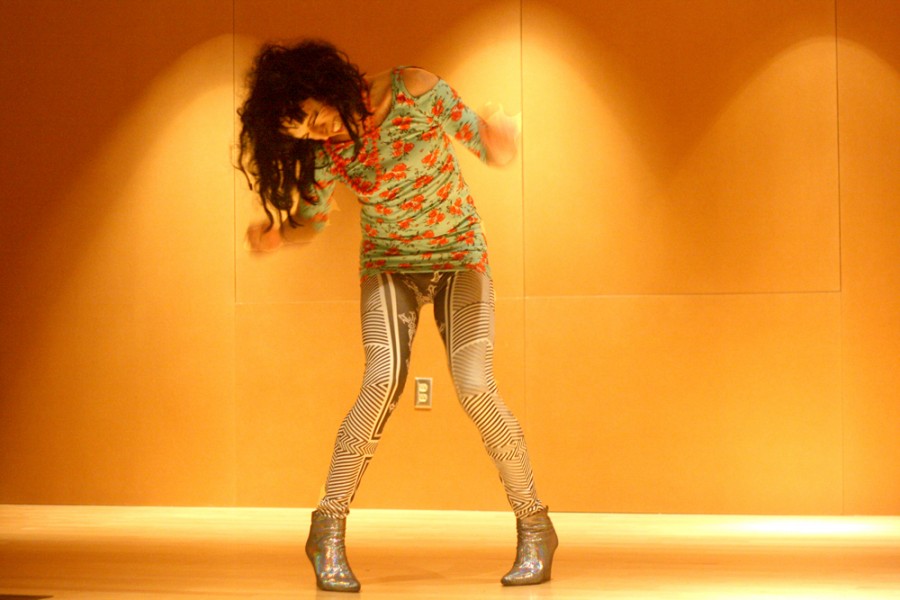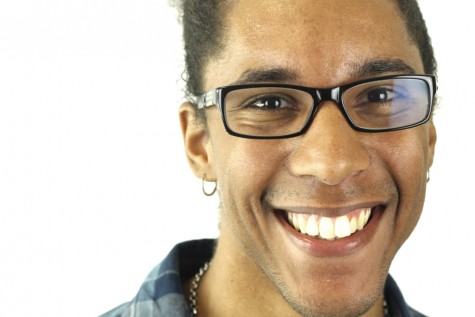Poets of color address issues of race, sexuality
October 7, 2014
Sliding up and down the stage wearing a silver jumpsuit, a blonde disco wig and rhinestone-studded heels while lip-syncing was a drag queen opening the performance to “A Journey of Two Poets of Color” Tuesday evening.
John Musser, a graduate student of the University of Illinois Urbana-Champaign, portrayed his drag persona “Veronica Bleaus,” the self-proclaimed “Worst drag queen in the Midwest,” and introduced the two poets of color.
The event was hosted by the department of English, Stories & Queer, Latin American Studies and EIU Pride.
The two poets, Marcello Hernandez and Derrick Austin, were both students at the University of Michigan when it repealed affirmative action laws this past April.
The poets said students protested the repeal because it further segregated the institution, showing how privileged its white students were.
“It’s a very white town and very privileged; they don’t want to recognize their minority students,” Hernandez said.
The poets said they have been considered the “token” minorities within their graduate programs.
Austin, who is African-American and also openly gay, said when he was in his undergraduate program, he felt a little alienated, which is why his experience being a part of both worlds comes through in his graduate work.
Austin said he first began to write poetry in high school as a side hobby and his work was well received.
“It was the first safe space for me, a black queer man, to exist on page,” Austin said.
Much of Austin’s writing comes with themes laced in sexual and racial identity, and he said he is lucky because their current graduate program is more accepting.
However, Hernandez came from a different cultural background of being an undocumented Latino. He said his writing recently has been exploring his Mexican heritage because he spent a large amount of his high school years hiding it because he was undocumented.
Hernandez said his prose is dedicated exclusively to a Latino voice while his poetry comes from a more sexual mindset. He said the issues of race and class are interconnected.
This was evident in both Austin’s and Hernandez’s readings during their performance. True to his word, Hernandez’s first poem opened up with the line, “I’ve never made love, I’ve never made love to a man.” Themes and elements of lust, oppression and an unconditional addictive love were all present in his poetic voice.
Austin’s poetry spoke on controversial issues of racial and sexual exploitation of African-Americans, with light teases of murder and sexual identity.
“If we don’t mention the issues of race, no one will, and we always feel that we have to remind people of that,” Hernandez said. “Diversity is important; we need to be able to be in a space where all the dimensions of our art can be talked about.”
Roberto Hodge can be reached at 581-2812 or [email protected].
















































